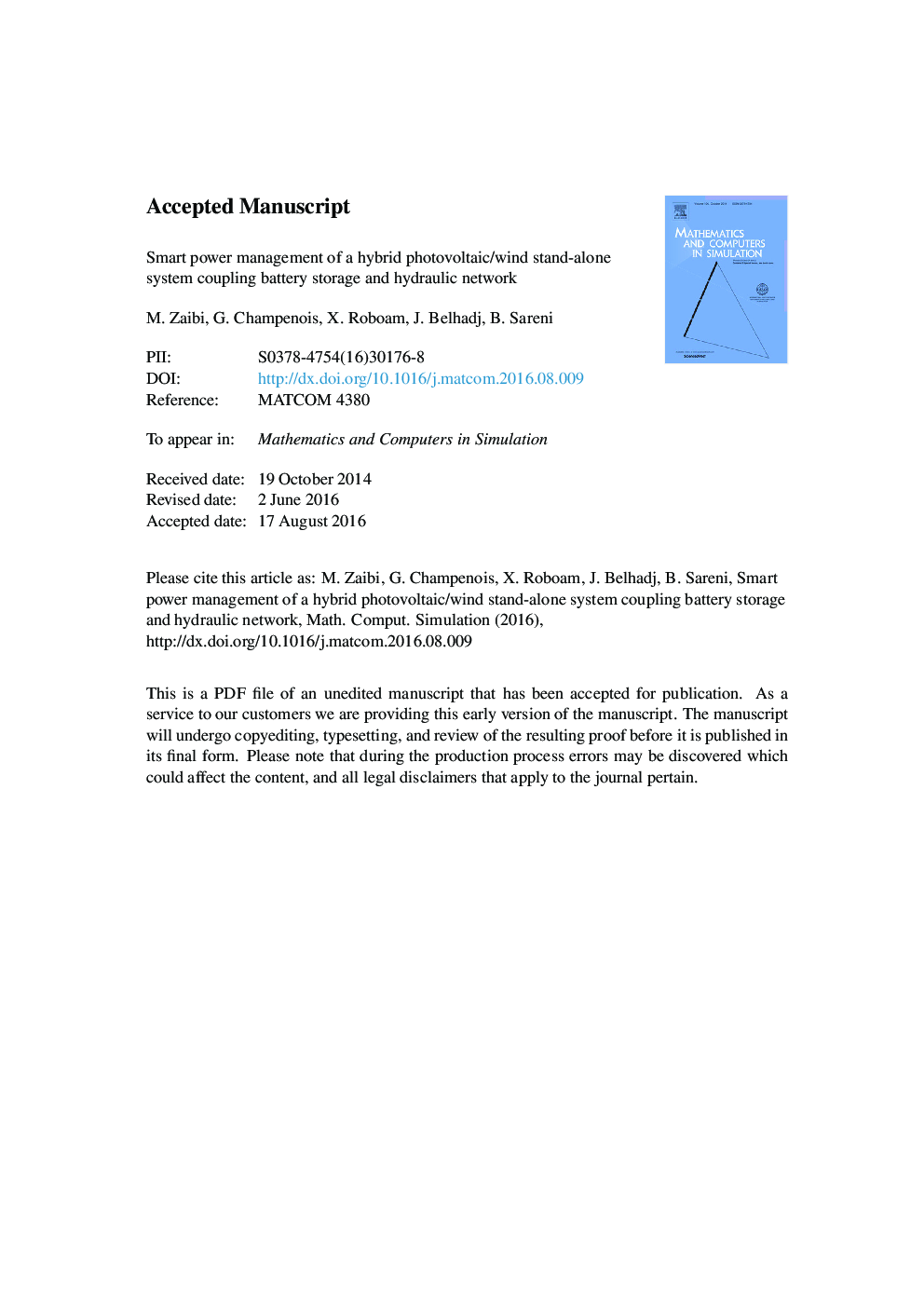| Article ID | Journal | Published Year | Pages | File Type |
|---|---|---|---|---|
| 7543255 | Mathematics and Computers in Simulation | 2018 | 23 Pages |
Abstract
An off-grid energy system based on renewable photovoltaics (PV) and wind turbines (WT) generators is coupled via converters to electric and hydraulic networks. The electric network is composed of consumers and of a battery bank for electrical storage, while the hydraulic part is made of motor-pumps and hydraulic tanks for water production and desalination. Both battery and water tanks are used to optimize the power management of both electric and hydraulic subsystems by ensuring electric load demand and by reducing at the same time water deficit following the operation of the renewable intermittent source. Thus, both electric and hydraulic subsystems are strongly coupled in terms of energy making necessary to manage the power flows provided by renewable sources to optimize the overall system performance. In this paper, two kinds of management strategies are then compared in the way they share the hybrid power sources between the storage devices (battery and tanks) and the electrical/hydraulic loads. The first approach deals with an “uncoupled power management” in which the operation of electrical and hydraulic loads does not depend on the state of the intermittent renewable sources: in particular, hydraulic pumps are operated only taking account of water demand and tank filling but without considering power sources. On the contrary, given the available power produced by the sources, the second class of strategy (i.e. the “coupled management strategy”) consists of a “smart” power sharing between the electrical and hydraulic networks with regard to the battery SOC and the tank L1 and L2. A dynamic simulator of the hybrid energy system has been developed and tested using a MATLAB environment. The system performance is shown under the two investigated approaches (uncoupled vs coupled). Several tests are carried out using real meteorological data of a remote area and a practical load demand profile. The simulation results show that the “coupled strategy” clearly outperforms the classical “uncoupled” management strategies.
Related Topics
Physical Sciences and Engineering
Engineering
Control and Systems Engineering
Authors
Malek Zaibi, Gérard Champenois, Xavier Roboam, Jamel Belhadj, Bruno Sareni,
